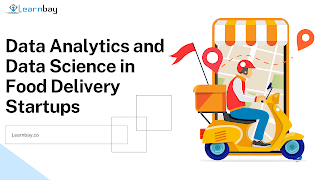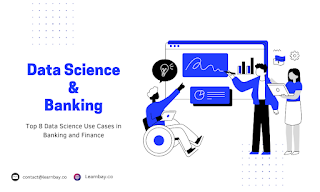Will Artificial Intelligence (AI) Replace Data Science in the Future?
Introduction
Data science has benefited from the increase in data creation. As we generate billions of bytes of data every day, it should be no surprise that data scientists are more important than ever if we are to use all this data. However, AI is also evolving swiftly, much like data science. Both disciplines are active right now, and robots are constantly developing their autonomy and intelligence.
It was about time that robots began to pose a danger to most people's ability to make a living wage, even if it initially seemed like a win for us humans that they would assist us in the majority of process-intensive professions.
There are many additional aspects that most of us overlook, even while AI has the capacity to accomplish the activities often assigned to a data scientist, such as data collection and data analysis.
Can AI replace data science?
We must first categorize careers in data science to comprehend this. There are many occupations in the broad subject of data science, from data analytics to developing ML solutions; the two primary groups are:
Data engineers are in charge of gathering data, processing it through various procedures, including data cleansing, and then storing it so that it is in a form that is suitable for future analysis.
Data scientists do the most difficult portion. Data scientists develop models and do exploratory analyses on the data that data engineers have generated to find multiple answers.
AI now threatens certain positions held by data engineers, but there is no immediate danger to data scientists. The roles that could potentially be mechanized in the future are listed below in brief.
Assembling and merging data from numerous sources.
Data cleaning and delivery to the appropriate locations.
After the models are prepared, automatically deploy them.
Finding certain trends in data.
Producing versions of certain models.
Don't misunderstand me; some of the key functions performed by data engineers are becoming automated or already are.
There will still be a demand for data engineers because not all tasks, including some of the most important ones like:
Supporting data while maintaining its efficiency.
Creating non-SQL pipelines
Taking care of the data's basic infrastructure
Additionally, just as computers did not take people's place but helped them reach new heights, the same is true in this situation.
Therefore, stop worrying about AI taking your job and relax while it develops into a tool that will enable you to do your job even better. To learn about AI techniques and tools, visit the artificial intelligence course in Bangalore.
Why Can't AI Replace Data Scientist Jobs is a valid question. May cross your mind.
So why precisely are data scientists being placed in a safe area? What do they have that can't be mechanized or perhaps performed by robots, given how intelligent they are every day?
Even the most difficult games, like Dota 2, which demand rapid reflexes and strategy, are already controlled by certain high-level AIs. What precisely do they lack that makes them incapable of doing the tasks that data scientists can? The solutions are all included in this section.
Data Scientists Keep Facing New Scenarios
The work of a data scientist is far more varied than that of a data engineer, who frequently does the same set of activities, such as acquiring data from a certain source or cleaning it. They frequently encounter the same issue only a few times as they always deal with fresh jobs in various situations.
Sadly, AI is not very good at this. Artificial intelligence must first be taught for a certain task before being used for it, and only then after obtaining a certain degree of accuracy.
No matter how advanced an AI gets, it lacks the ability to solve new problems.
For instance, a data scientist would examine a business problem and the data that goes with it as part of their work. A data scientist will create a specific model that may be used to address a certain problem in that particular problem area. This isn't the primary issue, though.
Machines Don't Have Intuition.
The main issue is that a data scientist is encountering this particular situation for the first time. He will be able to handle the assignment, thanks to his/her knowledge of machine learning models and how they are developed.
AI Doesn't Have the Soft Skills
For a second, AI has developed to the point that it possesses all the technical abilities necessary to be a data scientist, making data science completely automatable.
Is all it takes to become a data scientist to have technical skills? We'll see.
The short and practical response to that is, "No." No matter how advanced AI becomes, it will never be able to match the interpersonal abilities of a data scientist or even an ordinary CEO in a corporation.
Conclusion
Artificial intelligence is developing swiftly, and traditional procedures are undergoing a significant paradigm shift as a result. Its growth poses a danger to several occupations, and as automation becomes more prevalent, human presence is reduced.
People worry that data science, which is among these professions, might be damaged by the enormous velocity it is currently experiencing. But as this essay has shown, more is needed to determine if data science can be automated. There are many unfulfilled needs for AI, which doesn't appear to be happening anytime soon. To become a competent data scientist, visit the best data science course in Bangalore, which offers domain elective choices for working professionals.




Comments
Post a Comment